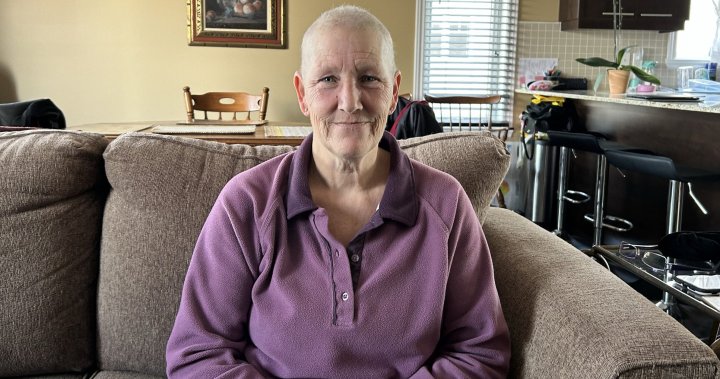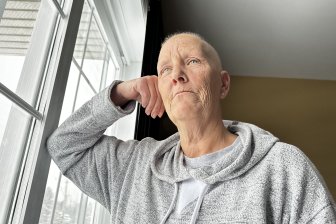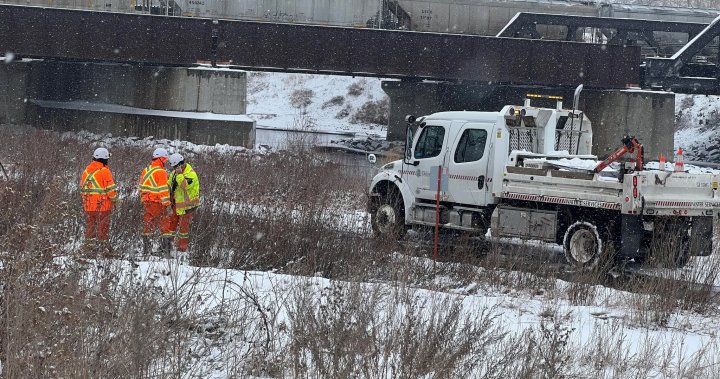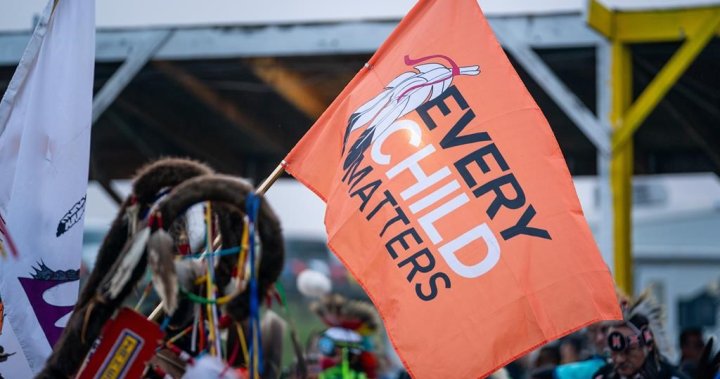Lise Lalonde just wants to keep a roof over her head as she faces stage two breast cancer that spread to her lymph nodes.
The 51-year-old woman from Beauharnois, Que., was devastated when she received her diagnosis last July and is now on the brink of financial ruin.
“How will I survive the next couple of months?” she said in an interview from her home Tuesday.
After taking time off work for a chemotherapy, bone marrow injections and surgery, she is running out of money. Lalonde will soon face the next hurdle in a long treatment plan: radiation.
The mother of three gave an update on her experience as she navigates the financial challenges associated with cancer. She received 26 weeks of Employment Insurance Sickness Benefit through the federal government, which covered approximately 55 per cent of her lost salary.
But now Lalonde, who doesn’t have benefits through her employer, is waiting on her latest application for financial aid under Quebec’s social solidarity program.
The process, she says, has been one “road block after another” since she initially contacted the province in early February. Her first application was denied since the little bit of money she does have left exceeded the maximum allowed.
“I was rejected because I had a few hundred dollars more,” Lalonde said.
Lalonde said she was asked to provide more details and paperwork. It has not only been exhausting, but she feels degraded for having cancer.
“Now we’re at a point that, do I want to keep fighting? To keep proving myself?” Lalonde said. “I don’t have it in me.”
The latest health and medical news
emailed to you every Sunday.
As a cancer patient, she also received a $2,000 grant to help from the CURE Foundation for Breast Cancer, a non-profit organization. That was also scrutinized by provincial administrators, she said.
Anxiety plagues Lalonde. As soon she opens her eyes in the morning, the questions come rushing in.
How will she pay rent? Will she be able to pay for gas to get to and from the hospital in Montreal from Monday to Friday for a full month? She describes it as a “constant worry.”
Lalonde has also had a few kind offers of loans to help her make ends meet, but she said those bits of money have all affected her application for financial aid.
“You’re damned if you do; you’re damned if you don’t,” she said.
Quebec’s Employment and Social Solidarity Ministry said in a statement Wednesday that it is sensitive to difficult situations, but can’t comment on specific cases.
But the ministry says eligibility for last-resort financial assistance depends on a number of factors, including the applicant’s personal and financial situation, as well as income. Applicants must declare their situation — including liquid assets and salary — and must provide any “document or information necessary to verify their eligibility” by law.
An analysis of “all household resources” is then done to determine eligibility and the amount to be paid.
By law, applicants must also declare any change that could impact their benefits, the ministry said. This includes inheritance, salary or a stay outside of Quebec, among other things.
“Any citizen can submit an application for last resort financial assistance and have their situation and eligibility assessed. The process and criteria for evaluating eligibility are the same for all citizens,” the ministry said.
But Lalonde argues that the criteria for financial aid shouldn’t be a one-size-fits-all approach, since applicants can apply for a variety of different reasons.
“There is no understanding that what I have is temporary,” she said.
Paul Brunet, a patients rights advocate in Quebec, said Lalonde “has the right to get adequate treatment and adequate assistance with all of the programs available for her.”
It should not be that difficult or complicated for cancer patients to receive financial assistance, he added. While due diligence is required, Brunet argues the process should be as quick as possible and not have as many bureaucratic hurdles.
“This will kill that woman,” he said.
Lalonde recently launched her own Gofundme campaign in hopes of bridging the gap. If her latest application fails, she says she won’t have any other choice but to rely on the generosity of others to help her going forward.
— with files from Global’s Phil Carpenter
© 2024 Global News, a division of Corus Entertainment Inc.





